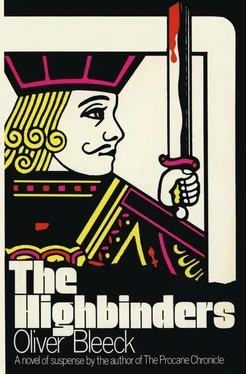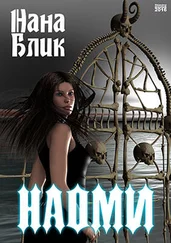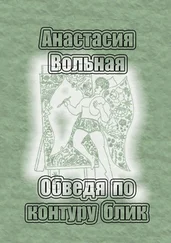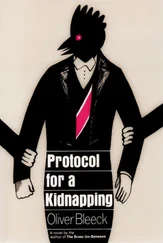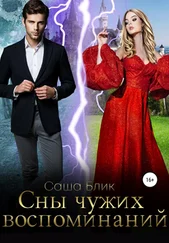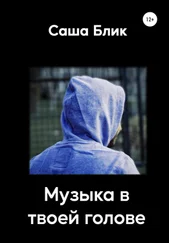That threw him a little, but not much. There was a pause and then he said, “All right, Mr. St. Ives, it is now six-oh-three.”
“When I get to the tombstone that’s shaped like an open grand piano, what happens?”
“The sword will be beneath the open lid,” he said. “You will have two minutes to examine it. Then you will put the one hundred thousand pounds exactly where the sword was. You will be watched, of course. Then you will walk slowly back to the Swain’s Lain entrance. I mean slowly. You will come alone. Do you understand?”
“I understand,” I said, but I don’t think he heard me because he had already hung up.
I immediately called Eddie Apex. It took him a while to answer the phone and when he did, he didn’t sound overly chipper either. He growled something that sounded like hello, or who the hell is this, and after I told him, I said, “It’s on and I need the money. Now.”
That woke him up. “Where and when?”
“The switch is at Highgate Cemetery. I need both the money and transportation. I have to be there by seven.”
When he didn’t say anything for a moment, I said, “You’re thinking.”
“I’ve already thought,” he said. “I’ll send old Tom in the Rolls. He can pick up the money from Ned and Bert and drive you out to Highgate and bring you back. With the sword.”
“With the sword. Have you got a hand magnifying glass? I never did pick one up.”
“Bert’ll have one.”
“Tell him to give it to Tom.”
“All right. What do you want the money in?”
“Anything that’ll hold it.”
“It’s on its way.”
My phone rang twenty-one minutes later which made it 6:28. I took a final swallow of the cold leftover coffee that I had warmed up with a large touch of Scotch. “It’s Tom, sir,” the old man’s voice said. “I’m downstairs.”
“I’ll be right down,” I said.
Old Tom looked as though he could have used a shave, but despite that he appeared spruce enough. He had on his uniform and cap and he held the rear door of the Rolls for me. Inside on the seat was a gray cloth bag, about the size of those once used by hotels for laundry. Printed across this one in faded gray letters was “The Roosevelt Hotel New Orleans.”
“Where the hell did they get this?” I said.
He already had the Rolls in motion. “Bit of a panic there was, sir. It was all Mr. Norbert could find to hold the lolly.”
I looked inside. There was a lot of lolly there, all in ten pound notes, some new, some old, and some in between, and all bound with brown paper wrappers that had £1,000 scrawled across them in pencil.
“They told you where to go?” I said.
“Highgate Cemetery, sir. Swain’s Lane entrance.”
“We have to be there by five till seven. Can we make it?”
Old Tom nodded. “Not to worry, sir. You just sit back and relax.”
At a red light I dumped the money out on the seat and began counting the £1,000 packets. There were a hundred of them, just as there should have been. I always count the money. Carefully. The people I do business with take an exceedingly dim view of being shortchanged. In fact, most of them would be so upset that they might try to redress their grievances with various convincing arguments. A Louisville Slugger was one favorite.
I looked up. We were on Edgware Road heading north. The morning traffic had already begun to thicken, but most of it was headed the other way. Old Tom sat at the wheel of the Rolls, his arms straight out in front of him as if he were rounding an S-curve at the Nürburgring. I glanced at the speedometer. We were already hitting sixty.
“Might get a trifle bumpy, sir, from here on,” he said, “so you’d best hold on to something.”
I nodded and grabbed for the strap. Old Tom hit the brakes and drifted the Rolls around the corner and we were heading up St. John’s Wood and by the time we flashed past Lord’s we were going eighty.
We never went that fast again because from then on it was a series of side streets and back alleys and once the wrong way on a one-way street, which must have saved us seven seconds at least. The old man snapped the big car around tight corners as though he were driving a Porsche with beefed-up suspension. A Rolls is not supposed to be driven that way, but this one was, and it performed admirably. I decided that if any of my friends and acquaintances should ever be in need of a get-away machine, I could wholeheartedly recommend that they steal a Rolls-Royce.
As we careened around corners and raced down too-narrow streets, we collected our full measure of startled looks, honked horns, and rude curses. I clutched the strap, braced myself with my legs, and listened to old Tom as he whistled chorus after chorus of “Roll Me Over in the Clover.” He whistled it off key.
Then we were through Highgate Village and heading fast down Swain’s Lane. Tom drew the Rolls smartly up to the curb, jumped out, opened my door, looked pointedly at his watch, and announced, “Three minutes till seven, Mr. St. Ives.”
I didn’t know whether he wanted a tip or a pat on the head. So I said, “You’re damned good, aren’t you, Tom?”
“I try, sir,” he said, looking pleased.
“You’re the best I’ve ever seen. You’re even better than Cannonball Briscoe.”
“Who’s he, sir?”
“He drove for Pretty Boy Floyd,” I said, making it all up. “After he got out of the slammer, he went on to make a name for himself in stock-car racing. Didn’t you used to race?”
He nodded. “I once led Fangio for three laps, sir.”
“That’s something to tell your grandchildren about.”
“I have, sir, and they don’t really give a damn.”
I entered Highgate Cemetery. My ex-wife, who was rather a weirdie in some respects, had discovered Highgate for me and when we had been flush enough, she would order the twenty-guinea picnic basket from Fortnum & Mason’s, and we would lug it out to Highgate and spread our cloth under a tree and have our game pie and hock in the company of some angels who had had their heads knocked off.
I suppose that when you’ve been dead long enough they don’t much bother with what your grave looks like at Highgate. The weeds grow up and the broken statues of various angels and saints and, for all I know, a few sinners tilt this way and that and sometimes fall down. The tall trees oversee it all and on a breezy day they seem to be gossiping about the foibles of the place’s permanent guests.
One of those permanent guests is Karl Marx and his statue glares out at the hardy bands of pilgrims who journey to it from such places as Minsk and Ploesti and Sarajevo and, I suppose, Berkeley and Ojibway Falls. Even at seven o’clock there was a band of them there as I approached the tomb of the prophet. They wore big wide hot-looking suits and sensible dresses and they had scrubbed, Slavic faces and they were all taking each other’s pictures. The one who nobody else would talk to, and there’s one on every tour, shoved his camera at me and said something in a language that came from somewhere east of what used to be called the Iron Curtain. He was a prissy-looking type, with gold rimmed glasses, and rather than create an international incident, I put down the Roosevelt Hotel laundry bag and snapped his picture. Then he started gesturing and pointing and there was nothing to be done but for me to pick up my sack of £100,000 in Kapital and stand in front of the tomb of the old man who had taken such a dim view of it so that the tour outcast could take a picture of me and my money.
I turned right after the statue of Marx and headed down the graveled path. I remembered the tombstone that was carved to about a five-eighths scale in the shape of an open grand piano. I didn’t remember who rested beneath it, but I long ago had made him up to have been a gay, insouciant type with a pleasant flat in Mayfair, an open Bentley, and any number of girls all called Pam and Jo and Liz who would plead with him to play something jolly as he entered the drawing room for drinks after having dressed for dinner. There’s more to it, of course. With a cheerful nod and casual ease, much reminiscent of Fred Astaire, my dead hero would take his drink over to the piano and run through such numbers as “Beyond the Blue Horizon,” “Nora,” and “Avalon.” This all took place, of course, in the spring of 1938 a few years after I was born. And he had died, this golden youth that my fantasy had placed beneath the open marble piano, during the Battle of Britain when his Spitfire bought it just after he had scored his fifth kill. He went down cleanly with no flames, of course, whistling “Nora.”
Читать дальше
